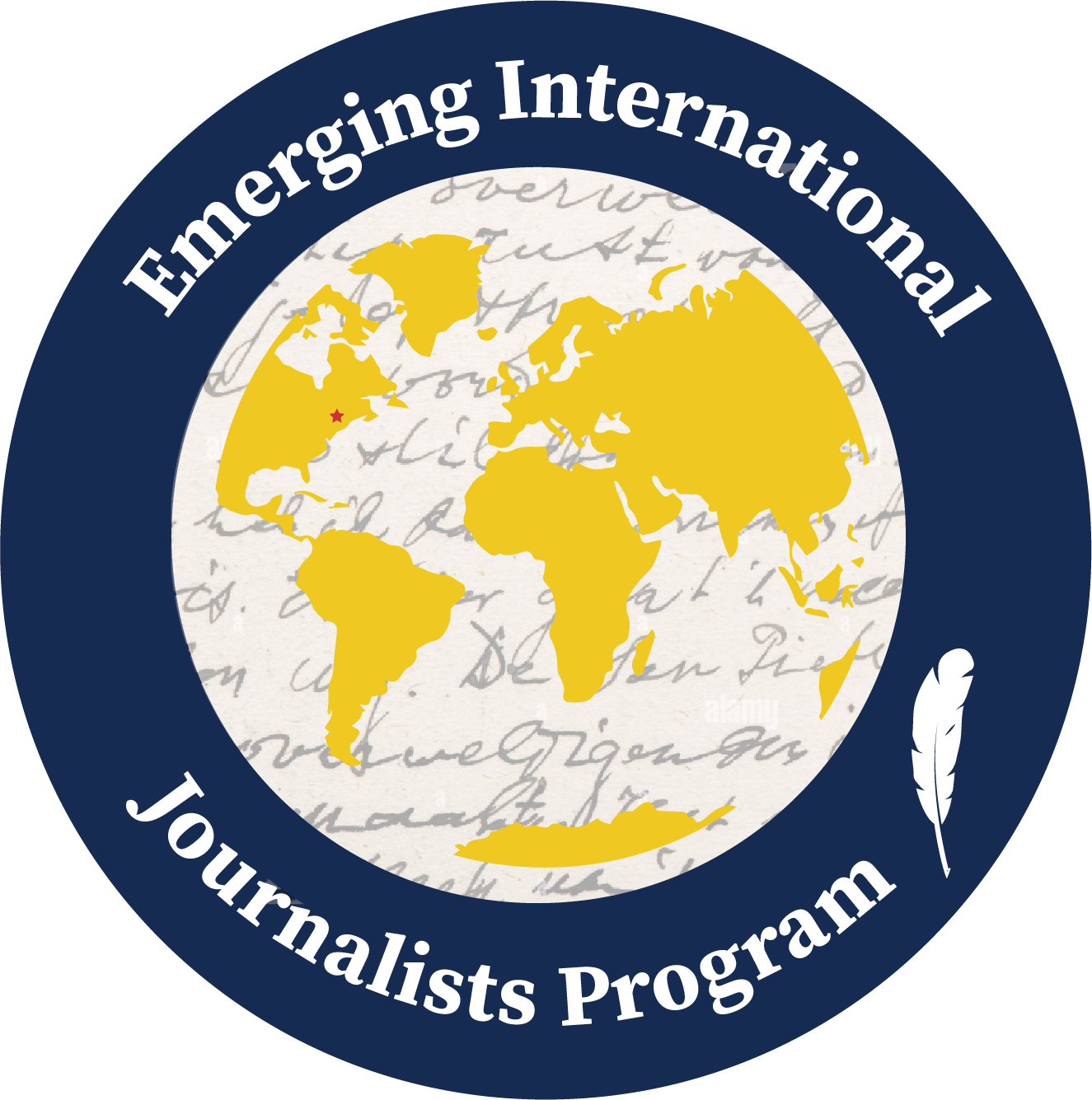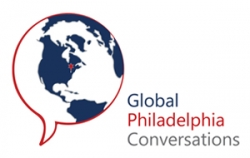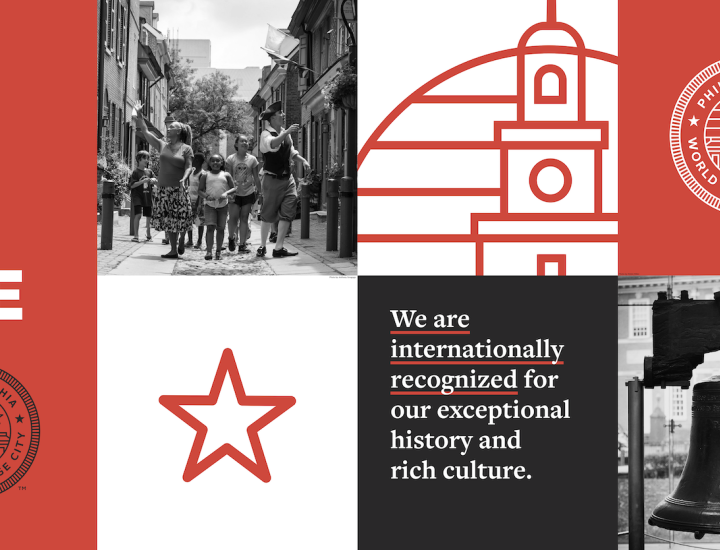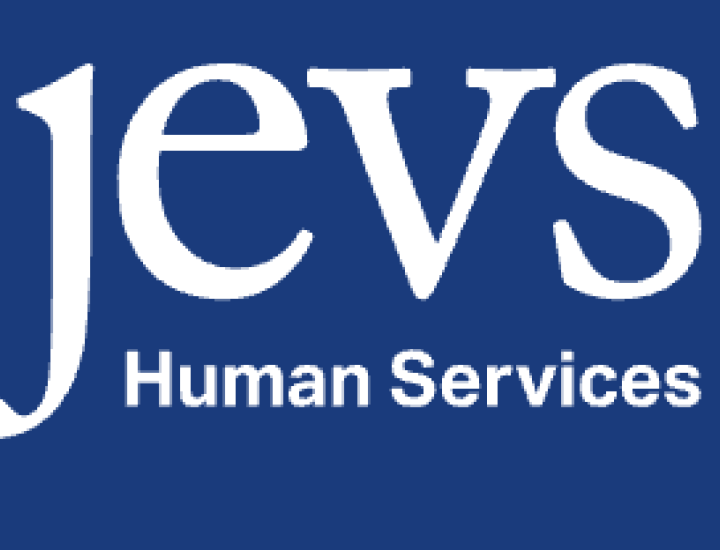Leading with Global Perspective: Cynthia Figueroa’s Travels and Work in Philadelphia’s Communities
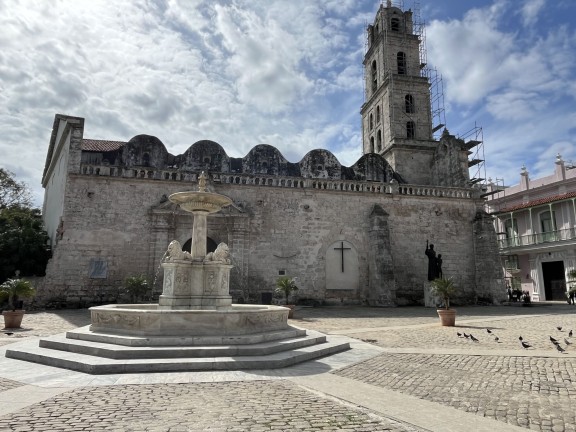
Here at Global Philadelphia, we focus on how Philadelphians can play a role in our broader international community, and how this community influences the diversity and cultural landscape of our city. As a part of our ongoing travel series that delves into the importance of travel and new experiences for the development of our young professional audience, our newest installment highlights the insights of JEVS Human Services President and CEO, Cynthia Figueroa, throughout her professional development and many international travels.
As a deeply involved Philadelphia community member who has worked in the nonprofit, government, and private sector, Cynthia’s worldly experiences not only taught her a great deal about social, governmental, and economic successes and issues throughout the world, but it has also helped her learn about her own heritage and passions. She has led integral nonprofits Congreso de Latinos Unidos and Women Against Abuse, and currently leads JEVS Human Services, a nonprofit supporting different communities in Philadelphia through home care and residential services; workforce development; and career and technical education. Her governmental background includes working in the Department of Human Services under Mayors Michael Nutter and Jim Kenney, and supporting Mayor Kenney as Commissioner from 2016-2020 and Deputy Mayor from 2020 to 2022, prior to joining JEVS Human Services.
Madi Costigan: Thank you so much for taking the time to tell us about your travel experiences and company for our Young Professionals travel article series. First, can you tell us a little bit about your professional background and your company, JEVS Human Services?
Cynthia Figueroa: I have been in the public service nonprofit sector for over 25 years. I've ping-ponged in and out of government, I've served two mayors in senior levels, and I have run three nonprofits in the city: Congreso de Latinos Unidos, Women Against Abuse, and now, JEVS Human Services. I am not a native to Philadelphia, but I have been living here for quite some time, so I feel very connected to the community and have been in leadership positions for most of the time I've been here.
About JEVS Human Services— we're over 80 years old. We focus on building economic independence for individuals and helping them live high quality, independent lifestyles. We support folks in the intellectual disability community. We do a lot of workforce and development services, like job placement, job training, and running a vocational tech college, Orleans Technical College. We do a significant amount of senior and elderly care and we run the city's summer and year-round youth employment programs. In summary, it's a multi-service nonprofit with human services, workforce development, career and technical education focus.
MC: Is that summer youth employment program new? How has that program grown and do you get a lot of Philadelphia youth involved?
CF: It is not new to Philadelphia, but it is new to JEVS Human Services. Last year was the first year that we operated it; Philadelphia has been running summer youth employment for over a decade, so we ran it last summer and this year, and are going to run it again next summer. We target about 7,000 youth every summer. Last summer, the program stipends put $7.6 million in the hands of young people who worked during the summer. These are resources going back into the economy, which is great.
MC: That’s great to hear! To go into your travels, I understand you traveled to Cuba. What drew you there and what did you do while you were there?
CF: For background, I was born in Puerto Rico, but my father is an American-born Cuban. He lived in Cuba during a good portion of his childhood, so there's a personal connection with family and heritage.
Then, through relationships and networks, I got the opportunity to go there. I know and have worked with the Panamanian consulate, who was organizing a delegation to go there to honor a church, St. Nikolaos Greek Orthodox Church, which had been built post-revolution. The church was celebrating its 20th anniversary, so we were there to celebrate its dedication, see the missionary work that the church was doing, and then meet with some of the government officials.
Since the revolution, the government owns all the land, and even though it's communist, they are very supportive of the diversity in a church structure. There's even a small Jewish community in Cuba. A lot of people think of communism as having a more narrow approach to religious freedom, but in Cuba, they actually celebrate a lot of religious freedom. It so happened that the government had to give them the land in order to build a church.
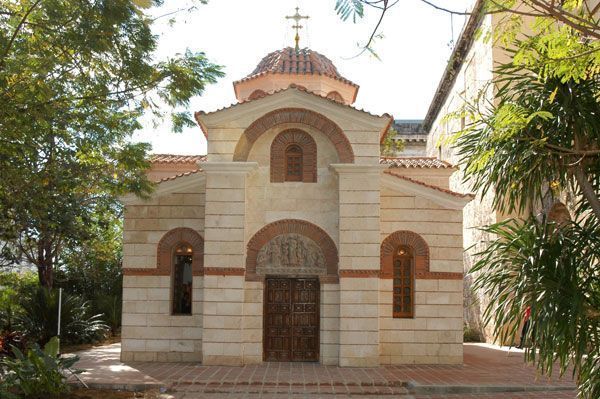
MC: What other countries have you visited throughout your professional career?
CF: I'm an Eisenhower Fellow, so one of my most significant professional development opportunities was during my Eisenhower Fellowship, where I traveled to Chile, Argentina, and Brazil. I was looking at women's leadership structures, the impact of women political leaders, and how to sustain the level of leadership and success when you ascend to the highest level. At the time, Chile and Argentina had women presidents: Michelle Bachelet in Chile, and Cristina Fernandez de Kirchner in Argentina. I met with a lot of the party leadership and presidential cabinet members, and got a chance to see and hear the different ways that women ascend into political positions.
I went back to Argentina because they have a number of NGOs and community-based programs that operate in really difficult parts of the country that were very similar to the neighborhoods we worked with at Congreso [de Latinos Unidos]. I have been to Israel with a delegation that was helping build alliances and relationships between the Latino and Jewish communities. I went to Germany during the Syrian refugee crisis to work on issues related to immigrants in new countries and visit refugee centers in different German cities. I have also been to the Dominican Republic and been a representative to the Mexican government for a women’s conference in Mexico City. I've been very, very lucky to bring my knowledge and experience to these international professional development opportunities.
MC: You clearly have a deep interest in women’s leadership in different countries. How has that impacted the way you lead and view women’s positions in other countries?
CF: Growing up as a Latina with a mother from Central America and a father from Cuba instilled in me a mindset rooted in diversity. My parents were both involved in the Peace Corps, so having this strong sense of social justice, I ended up working in social justice, social services, and then establishing myself as a leader. I was really hungry to learn how to be an effective leader and how to be successful. I have been drawn to ask, “how are you successful as a woman in any of the work that you do, and how do you support other women to also be successful?”
MC: Do you often find yourself comparing the places you have traveled to our city or country?
CF: Yes. First, in our current climate, I don't say this with the same level of certainty, but we have the best judicial system in the world. There are elements that obviously need reform, and we've seen where it has failed certain people, but for the most part, people really do follow the rule of law all the way up through the Supreme Court. Some of those things, I think, are being challenged now based on politics, which historically have not infiltrated the courts. So, I'm starting to see some comparisons with some Latin American countries that have not done well; where there is corruption, or the dictatorship starts to encroach on civil liberties.
An observation I've always had is the strength that comes with the ability to have a voice or speak up and not risk retribution for that. People really take that for granted in the U.S., although I think they're taking it less for granted lately.
Another observation is that we don't appreciate our resources, whether that be our natural resources or just our surrounding areas, in the ways that other countries and cities do. And there are contradictions in that. So, for example, we have a sanitation and trash system that picks up our trash and we throw away a lot. We have a lot of food that we throw away that we don't use, because we are consumers. In Cuba, citizens struggle from resource depletion, so they don't have extra food that they're throwing out because it's gone bad, and they don't have an infrastructure strong enough that trash is picked up on a regular basis.
Related to Cuba, I knew there were old buildings and old cars, but I didn't realize how poor the condition of the infrastructure was going to be. I think that’s a real variance between the U.S. and Cuba, which is different than in other parts of Latin America.
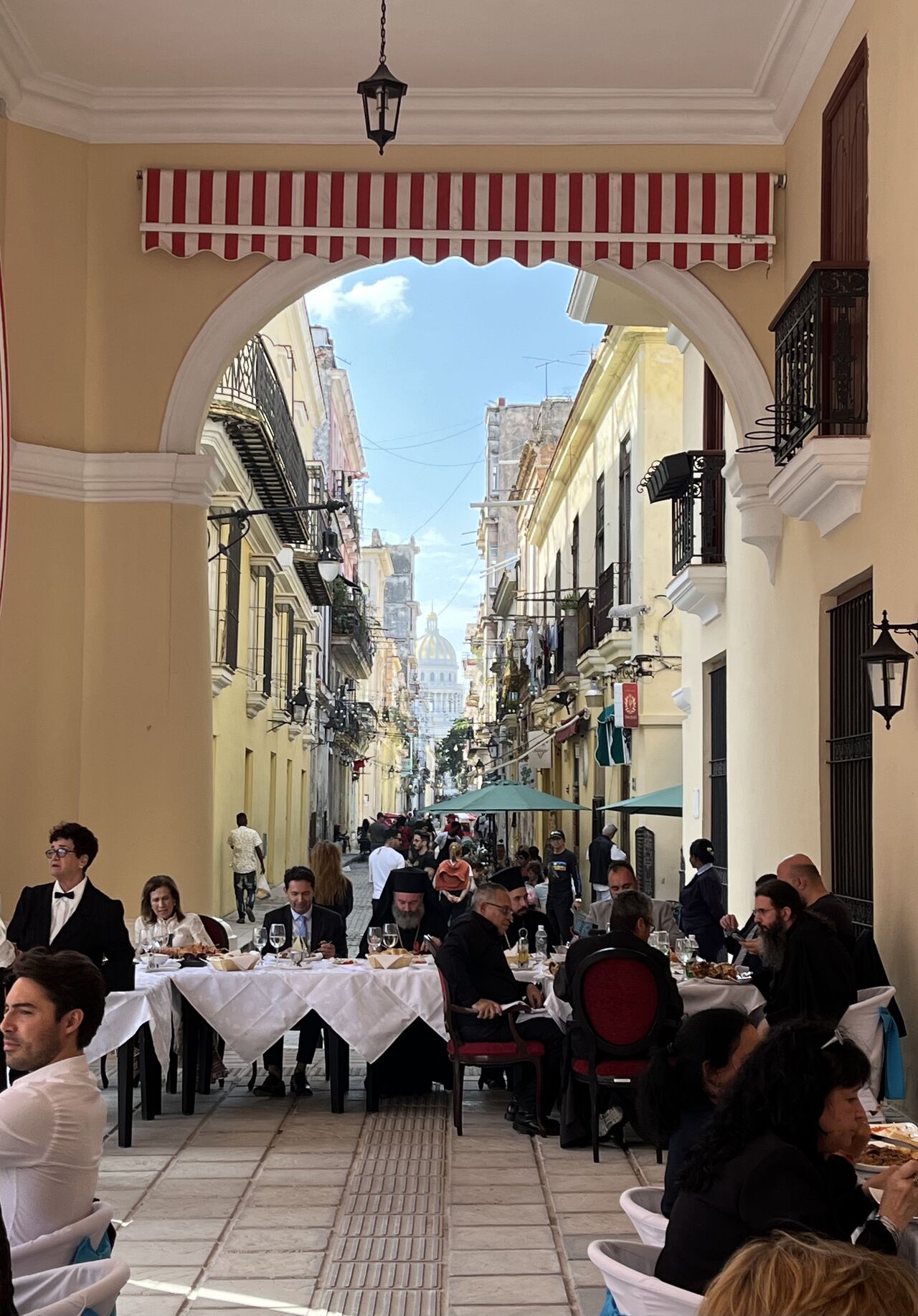
MC: Can you share a little bit more about how you noticed communism coming to the forefront during your travels to Cuba?
CF: With communism, the availability of money or how commerce is seen is so different from capitalism. They're very entrenched in doing things in a systematic way. I had scarce resources growing up, and I'm in a very different place socioeconomically as an adult. This made me revisit how wasteful we are as Americans. We think we need all these things as consumers, and when you don't have access to basic resources, it makes you think differently about what you need versus what you want.
When you go there as a delegation, you might have a guide or not, but they also make sure you are safe and following your itinerary. The people are amazing and lovely, and you are slightly restricted. They may caution you on certain things. For instance, you can't take pictures of military personnel. Resources can be limited as there is an interest in having access to US dollars. Cubans must use pesos and there are hotels and stores where they are not permitted to enter or use.
MC: What advice do you have for our professionals who want travel experiences like this?
CF: One of the things I would say to young professionals is that it is important to work really hard to establish yourself and be known as a voice, because a lot of those opportunities were connected to networks I was a part of. A lot of my travel opportunities presented themselves because of the work I've been doing.
